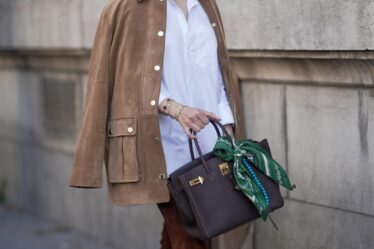
Clothing is one of the essential requirements for human survival. Without it, the body won’t be sufficiently protected from harsh elements and weather changes. However, clothing has evolved to become more focused on fashion and consumerism. This evolution eventually led to the development and proliferation of business and manufacturing processes beneficial for capitalists and consumers but harmful to health and the environment.
In recent years, the call for conscious consumerism paved the way for sustainable fashion to gain more global recognition. Sustainable fashion refers to the environmentally friendly design, manufacture, distribution, and usage of clothing and accessories. It’s also intricately connected to ethical fashion, which refers to supporting manufacturers that protect laborers’ rights and promote social welfare. Those who want to be more conscious shoppers then support businesses that employ sustainability and ethical practices in their enterprise.
If you’d like to get behind the conscious consumerism movement by supporting sustainable fashion, here are the essentials that you should look for when shopping for clothing or accessories:
- Use Of Eco-Friendly Materials
One of the most environmentally-damaging aspects of fast fashion is the strain it causes on the environment. The clothing manufacturing industry is considered a significant contributor to air and microplastic pollution, and the chemicals used to treat textiles also add to the toxic waste harmful to the environment. Because of this, sustainable fashion businesses use eco-friendly materials that have minimal impact on nature’s health.
If you’re shopping for green clothing and options, you can look for the following materials:
- Organic and recycled cotton
- Hemp
- Linen
- Cork
- Lyocell
- Recycle polyester
Apart from these, you can also consider Eco Friendly Hessian and Jute bag options if you want quality accessories made with sustainable materials. These materials have the most negligible environmental impact, which is why they’re great options if you want to help save and protect them.
- Ethical Business Practices
Sustainable and ethical fashion goes hand in hand. The two are intricately connected because apart from saving the environment, conscious consumerism also involves supporting businesses that protect marginalized sectors and communities, labor rights, and animal welfare. Hence, if you intend to promote sustainability in fashion, you’ll also need to consider if the brand you’re buying from has ethical business practices aligned with this agenda.

Here are some examples of ethical business practices based on global standards:
- No animal testing
- Supporting local businesses and agricultural sectors
- Prevention of forced and child labor
- Providing worker benefits as outlined by labor laws
- Providing equal opportunity and fair wages
- Prevention of discrimination among employees
Besides these, it’s also essential for companies to provide adequate health and safety measures in the workplace to meet ethical fashion standards. Through these practices, you can ensure that the products you use are made conscientiously and with consideration for social responsibility.
- Green Manufacturing And Distribution Processes
Besides using eco-friendly materials, sustainable fashion also requires manufacturers to minimize their environmental impact in the production and distribution processes. For instance, they can put specific measures in their manufacturing plants to conserve energy, prevent air, soil, and water pollution, improve waste management, recycle, and optimize the use of natural resources.
Meanwhile, sustainable distribution pertains to transporting goods with negligible environmental impact. It involves preserving the ecological and social environments while ensuring the health and safety of the workers.
- Inclusivity
Finally, you should also consider the inclusivity vision and policies of the company that manufactures your clothing and other fashion items. Inclusivity policies protect against discrimination based on gender, race, body shape and size, physical disabilities, and other factors. In fashion, inclusivity is reflected by a brand’s efforts to provide quality clothing for everyone regardless of the said factors.
Some brands would express their inclusivity, mission and vision in their merchandise. Others, on the other hand, may provide certifications in their physical stores or online shops to let consumers know of the standards they adhere to in their clothing design. On the other hand, you can also contact the company’s customer service hotline if you have any questions.
Conclusion
Supporting brands that promote sustainability in fashion is a great way to practice conscious consumption. By doing so, consumers can discourage big companies from engaging in activities and processes that harm the planet, endanger lives, or promote social inequity. At the same time, while it may seem like a small step toward protecting the environment and improving labor conditions across the globe, making essential changes to your clothes shopping habits can be a massive help in the long term. Finally, your efforts towards caring for the planet and other living beings can inspire others and help push the movement towards achieving its ultimate goals.



